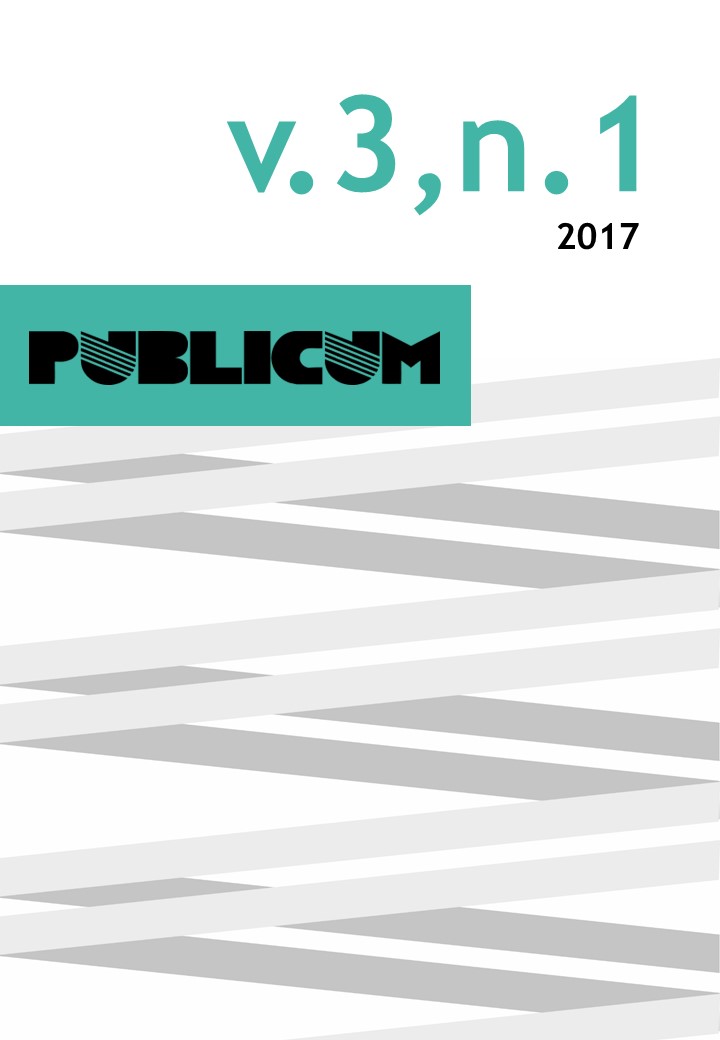Coisa julgada inconstitucional na teoria geral do direito e o Novo CPC - Código de Processo Civil
DOI:
https://doi.org/10.12957/publicum.2017.29464Palavras-chave:
Sistemas normativos, coisa julgada inconstitucional, inexistência, invalidade, aplicabilidade.Resumo
Analisa o papel inovador das decisões judiciais nos sistemas jurídicos, bem como a coisa julgada inconstitucional e suas relações de existência, validade e aplicabilidade normativas. Conclui que uma decisão judicial inconstitucional é ato existente, embora inválido, que se incorpora ao sistema normativo por força de metanorma específica que lhe dá estabilidade normativa (art. 5º, XXXVI, da Constituição). Assim, a autoridade da coisa julgada decorrente de decisão judicial inconstitucional mantém-se aplicável até que seja desconstituída, pelos meios processuais próprios, no tempo e modo devidos.
Cuida, ainda, dos princípios constitucionais aplicáveis na impugnação da coisa julgada inconstitucional, além dos instrumentos impugnativos previstos no novo Código de Processo Civil brasileiro - NCPC.
Downloads
Publicado
Como Citar
Edição
Seção
Licença
O autor do trabalho declara conhecer e concordar com as regras a seguir:
1) Realizou o trabalho apresentado à revista, sendo inteiramente responsável pelas ideias e conceitos nele emitidos, que não correspondem, necessariamente, ao ponto de vista dos Editores de Publicum.
2) Obedeceu, na realização do trabalho, os princípios éticos aludidos na política de avaliação da revista[RDN1] .
3) Assume a autoria e a responsabilidade pela obra, declarando que ela não infringe quaisquer direitos de propriedade intelectual de terceiros.
4) Responsabiliza-se, integralmente, por danos de natureza moral ou patrimonial que a veiculação da obra venha a gerar a terceiros.
5) Cede à revista os direitos de reprodução, edição e primeira publicação do trabalho em qualquer meio midiático, em particular sob forma digital, em arquivo eletrônico online na internet.
6) Confere aos Editores o direito de modificar o texto apresentado, sem prejuízo de seu conteúdo, quando necessário para uniformizar a apresentação dos trabalhos e para atender as normas de edição próprias da revista.
7) Concorda com a forma final do trabalho aprovada pela revista.
8) Autoriza a divulgação do trabalho nos canais de comunicação da Faculdade de Direito da UERJ.
9) Concorda com a reprodução de pequenos trechos do trabalho em outras publicações da UERJ.
10) Reconhece que, pela cessão e autorizações acima referidas, não receberá remuneração sob qualquer modalidade, tendo estas o caráter de colaboração científica.
11) Tem ciência de que a publicação do trabalho poderá ser recusada caso não considerada conveniente, por qualquer motivo que seja, sendo que tal recusa não gera responsabilidade e/ou ônus de espécie alguma à revista ou UERJ.
[RDN1]Ver COPE.

Publicum está licenciado com uma Licença Creative Commons Atribuição-NãoComercial 4.0 Internacional.

